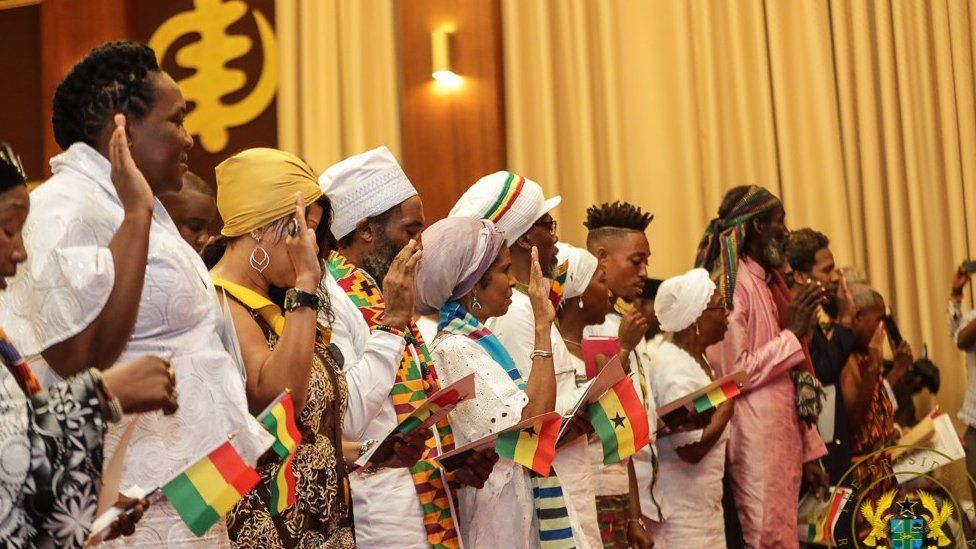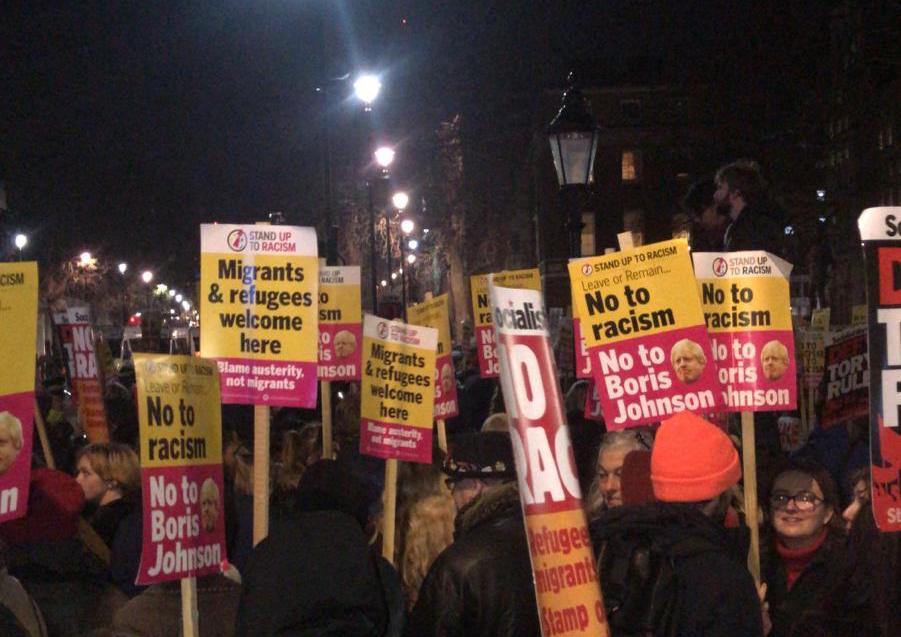
Meet Nadia Whittome, UK parliament’s youngest MP
We may have experienced great loss but rising out of the ashes is a new generation of MPs who are women of colour. The youngest of them speaks here.
Oluwaseun Matiluko
04 Jan 2020
Photography via Nadia Whittome / Twitter
The youngest MP in our country is a woman of colour. Yes, that’s right, despite the erroneous reporting by Sky News, in a now-deleted article that claimed 25-year-old Conservative MP Nicola Richards was the youngest, the “baby of the house” is Nadia Whittome for Nottingham East. The 23-year-old of Punjabi origin, (who, by the way, “absolutely love(s) gal-dem”) was one of the few new Labour candidates to secure a seat in the 2019 general election. The previous Labour MP for Nottingham East had been Chris Leslie, himself being elected as the “baby” in 1997. He ran this year as a candidate for the widely-criticised and largely unsuccessful Independent Group for Change. While Chris came in fourth with 1,447 votes, Nadia secured 25,735 votes and took away 64.3% of the vote share.
Aside from her age, Nadia seems very different to most MPs. For one she is very excited about her role, she’s not jaded, and is keen to interact with those on the ground on her community, and help them to implement radical change.
“People in Nottingham who I’ve grown up with, and there are too many people to mention, you know I’ve grown up with them, I’ve worked with them, I’ve organised with them. They all inspire me,” she explains over the phone.
Talking to Nadia is like talking to a friend. She’s our agemate. We laugh and joke about our experiences growing up as young women of colour in the early 2000s and lament the racism we both encountered at school from students and teachers. She is whip-smart, determined and forthright in her answers to me and seems genuinely passionate about what she’s talking about perhaps because, as she reminds me, she “actually [hasn’t] been given any media training yet.”
Laughter and soft chatter can be heard in the background during our phone interview. Nadia still lives with her family and it is clear that they are very close, with some members supporting her in her grassroots election campaign. She was brought up in Nottingham, alongside her brother, by her mother who she describes as one of her biggest inspirations. “She brought us up completely on her own, made huge sacrifices in doing so,” she says. “I wouldn’t have had the opportunities that I have without my mum’s blood sweat and tears.”
Her family is what grounds her. From a young age, her family were engaging and connecting with her about politics. She cannot believe how now she gets to work with many of the people her and her family used to talk about; “like Diane Abbott who I grew up in awe of, she was loved by my mum and people in my family and she’s one of my colleagues now.”
It was during 2012’s “bedroom tax” that Nadia traded in discourse for dynamism at the age of 16. “My community was decimated by the bedroom tax,” she told Huck magazine. “It wasn’t unusual for people to make three shepherd’s pies to give to neighbours because families were struggling to put food on the table.” As a result, she helped organise an anti-austerity rally with Tony Benn. Since then, she has been involved in activism against the hostile environment, getting involved due to its effects on the Windrush generation, in activism against the gig economy and activism for the freedom of the people of Kashmir.
“Diane Abbott who I grew up in awe of, she was loved by my mum and people in my family and she’s one of my colleagues now”
Nadia Whittome
A couple of years ago she was a university student, studying law at the University of Nottingham and acting as the Student Union’s BME Network General Secretary. Then she transitioned into community work, acting as a hate crime worker, a care worker and getting involved with a variety of activism within Nottingham and across the country. She tells me that, due to her work, “a lot of people in the community, from different sections of the community encouraged [her] to stand”.
They weren’t sure that she was even going to win the selection process, she jokes that if bets were on she wouldn’t be “bookie’s favourite”, but she did and now she’s an MP for Nottingham East. And she doesn’t take that for granted. “I want to stick around and to serve my community until we see some real change,” she says. “My focus is utterly and completely on being a member of parliament for the people of Nottingham East.” For her, that would mean dismantling austerity, tackling racial disparities in policing, stop and searches went up by 58% in Nottingham this year, and trying to implement a real “people’s plan for Nottingham East” based on consultation with the community.
In 1987 Diane Abbott became Britain’s first black woman MP. A couple of days after her win Good Morning Britain host Anne Diamond asked her if people should be “frightened” that she made it into the House of Commons. Anne’s colleague Adam Boulton then probed Diane about the “divisive debates” within the Labour party on how powerful the voices of “blacks” should be. Politics and political discourse have changed in many ways since 1987, and now, in 2019, Nadia Whittome joins the record number of new ethnic minority MPs elected.
However, Nadia recognises that representative political leaders do not always bring about representative change. “Just having MPs of colour is not enough, you know the Tories have MPs of colour and they’re enacting the most racist immigration policy we’ve seen for a long time,” she explains. “They were the architects of the hostile environment. I think that’s why having MPs who are rooted in our communities is important.”
“Just having MPs of colour is not enough, Tories have MPs of colour and are enacting the most racist immigration policy we’ve seen for a long time”
Nadia Whittome
Nadia feels rooted in her community due to her being proudly working class and working for and organising with the people of, a predominantly working-class community. She sees herself as part of a working-class “movement,” she is of the mindset that working-class MPs should rise with their communities – not above them, and in that respect it is unsurprising that she has recently made headlines for declining the £79,468 starter salary for MPs, only accepting £35,000 and donating the rest to charity. “When firefighters, teachers assistants, nurses, carers get a pay rise, I’ll take mine,” she said.
For Nadia, this isn’t about the power play of altruism. As she wrote in The Social Review: “If Labour MPs are in Westminster to represent workers, they should not take salaries that separate them materially from the vast majority of the people they were elected to represent.”
She points out that the Labour party’s roots are with the working class and that it may be inaccurate to say that the reason why Labour lost the last election is due to them losing support from the working class. “Many working-class communities turned out en mass to vote for Labour,” she adds: “You know, I have an over 17,000 majority in Nottingham East. It’s not as simple as ‘working class voters are deserting us’. And to say that erases a whole section of the working class that built this country. People of colour overwhelmingly turned out to vote Labour.” Looking at the last census it’s clear why Nadia feels this way. In 2011, 25.5% of people recorded in Nottingham were people of colour and in areas covered by the Nottingham East constituency specifically, there were large communities of colour, the largest being in St Ann’s, where 42.2% were people of colour, and Berridge, where 42.8% were. It is likely that these numbers will have gone up by the time of the 2021 census.
With her statement, Nadia is of course referring to the argument that the reason why Labour lost the last election is due to them losing the support of the traditional working class. “Implicit in that is that the working class is white. There’s this utter falsehood that people of colour only exist in London, and that working-class people of colour are somehow not working-class at all, or some sort of privileged section of the working class. We don’t want to be in the situation where the Labour movement capitulates to the hard right, sees that we’ve lost lots of seats in the North and the Midlands, and thinks that we can bank on the votes of people of colour, and join the Tories in tacitly accepting our demise… That’s one of the big immediate fights within the Labour party I think.”
With Labour in power Nadia is sure that we would have seen immediate change. She laments the fact that the Tories won, stating that if there was a Labour government it “genuinely would have transformed people’s lives. It would have pulled people out of poverty, we wouldn’t have had anyone sleeping rough this Christmas. Everyone from [the election date] if Labour had won, everyone over the age of 16 would be on a minimum wage of £10/hour.”
Yet she has not given up hope and looks forward to helping strengthen Labour party support in the years ahead, ensuring radical politics is at the forefront of the agenda. She hopes that a new leader will step forward who is committed to improving issues close to her heart. As she explains, “Tackling the climate emergency, a programme of economic decentralization to power in people’s hands in every region in the UK and at the most local levels, and a strong anti-racist and pro-migrant line.”
And it seems to me that many of us can find hope in her election. The swell of support for Nadia is motivating and signals the continuation – against the odds – of louder, mainstream calls for positive change that many young people of colour have been asking for. In a climate within which issues such as climate change, which disproportionately affect working-class people and people living in the Global South, intersectional feminism and mental health are on the agenda, having a representative who can actually speak to these issues is amazing. Nadia recognises the radical women of colour who have come before her, saying that she stands “on the shoulders of giants,” and hopes to continue their work, describing herself as an MP who will be “on your picket lines”.
She wants to try and change Westminster, and she points to the many women who have been at the forefront of transformative politics in Britain like “Mrs Desai, the Grunwick striker” who drew attention to the inequalities some women of colour faced in the labour market in the 1970s.
She tells me that she feels “immensely honoured to be elected to serve [her] home city as an MP, especially as Nottingham’s first BAME MP. I have the opportunity to meet so many people in Nottingham and across the country who are organising in the face of austerity and I can’t wait to work with them and to share my platform to raise the voices of people who are marginalised.”
“These institutions, the houses of parliament, the House of Commons, Westminster and the palace- they’re hostile to us [working class people of colour],” Nadia reminds me. But it’s important that she’s there, despite the massive “culture-shock” that came with coming down to Westminster on her first day of work, she wants to make sure that the concerns of marginalised communities are actually heard regardless of the elitism inherent within her newfound profession. “Sitting down on the green benches for the first time, opposite predominantly white, middle-class, and older government benchers. Seeing the way that they behave, and the noises that they make…you know if we were behaving like that, on my estate, we’d be stopped and searched.”
She remains undeterred and hopes to bring her various communities, working-class people, people of colour, and of course all the people of Nottingham East, with her on her political journey.
“It’s not just a one-person job, it’s all of us, particularly as an opposition, it’s all of us now more than ever. “
It is important that alongside more radical activists we have political leaders in Westminster ready to make policy and legislative change. That is why so many of us are excited about Nadia. One of us has a seat at the table, and she wants to take us with her:
“I want to not just leave the ladder behind me but to be actively pulling people up.”









